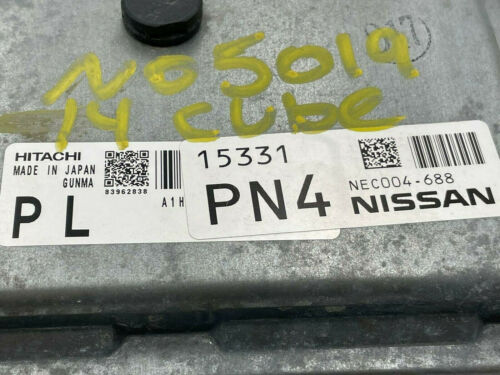U.S. officials announced a $1.6 billion deal with Toyota subsidiary Hino Motors late Wednesday to settle charges it deceived regulators about the amount of emissions spewed by its diesel engines.
Hino used altered emissions test data to get approval to import and sell more than 110,000 diesel engines to the U.S., most of which were installed in heavy-duty trucks made by Hino, according to the Environmental Protection Agency (EPA).
As part of the deal, Hino will plead guilty to engaging in a criminal conspiracy to mislead regulators and consumers, violating environmental protection laws and endangering public health, Attorney General Merrick Garland said in a news release.
U.S. regulators and the state of California, which has strict vehicle emission standards, worked out criminal and civil remedies with Hino valued at more than $1.6 billion.
The deal includes a $521.76 million criminal penalty, $442.5 million in civil penalties to U.S. authorities and $236.5 million to California, according to the Reuters news agency.
“Hino’s actions directly undermined EPA’s program to protect the public from air pollution,” acting EPA administrator Jane Nishida said in a release.
The proposed settlement is contingent on approval from a federal district court judge in Michigan.
“Corporate crimes such as these endanger the health and well-being of innocent Americans, as well as the environment in which we all live,” said U.S. Attorney for the Eastern District of Michigan Dawn Ison.
The deal includes a five-year term of probation during which Hino will be barred from importing diesel engines it has manufactured into the United States, and implements a comprehensive compliance and ethics program, according to the EPA.
“This resolution is a significant milestone toward resolving legacy issues that we have worked hard to ensure are no longer a part of Hino’s operations or culture,” Hino Motors CEO Satoshi Ogiso said in a statement. “We deeply apologize for the inconvenience caused to our customers and stakeholders. In order to prevent a recurrence of this kind of issue, we have implemented company-wide reforms, including meaningful improvements to our internal culture, oversight and compliance practices.
Hino will also have to recall some trucks with engines violating emissions standards and spend some $155 million to replace marine and locomotive engines throughout the U.S. to offset excess air emissions, according to the EPA.
Toyota’s Hino unit has agreed to plead guilty in a $1.6 billion settlement of a U.S. emissions fraud case. The settlement comes after an investigation revealed that the Japanese truck maker had installed devices in its vehicles to cheat emissions tests.
This is a major blow to Toyota, which has been a leader in the automotive industry for years. The company has been working to rebuild its reputation after previous scandals, and this latest development is sure to set back those efforts.
The settlement also serves as a warning to other automakers that fraudulent emissions practices will not be tolerated. It sends a clear message that companies must adhere to regulations and be transparent in their operations.
As consumers become increasingly concerned about the environmental impact of vehicles, it is crucial that automakers prioritize compliance with emissions standards. This case serves as a reminder of the importance of accountability and responsibility in the automotive industry.
Tags:
- Toyota Hino emissions fraud case
- Toyota Hino guilty plea settlement
- U.S. emissions fraud case
- Toyota Hino $1.6 billion settlement
- Toyota Hino legal case
- Toyota emissions scandal
- Toyota Hino news update
- U.S. emissions fraud investigation
- Toyota Hino scandal
- Toyota Hino legal action
#Toyotas #Hino #unit #agrees #plead #guilty #billion #settlement #U.S #emissions #fraud #case







